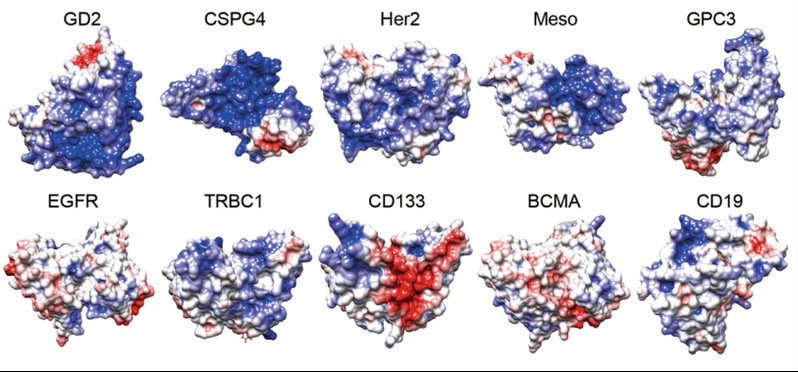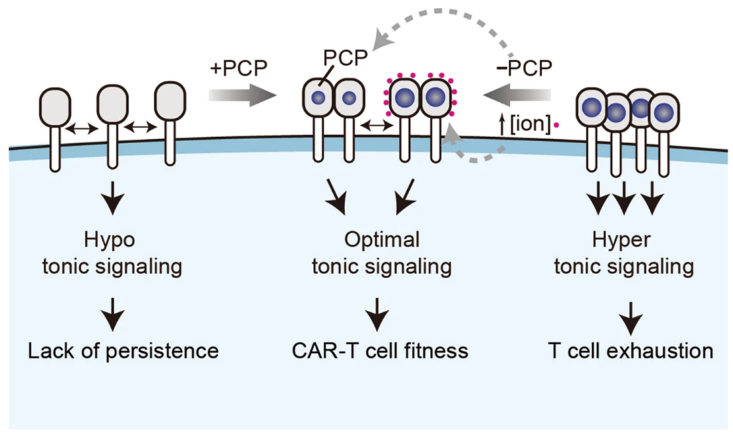CAR-T cell therapy is a tumor immunotherapy that activates the expression of Chimeric Antigen Receptor (CAR) on patients’ T cells, enabling them to recognize and kill tumor cells. CAR-T therapy has shown remarkable efficacy against blood cancers but poor efficacy against solid tumors. One of the primary reasons is that the tonic signal of CAR-T cells leads to their exhaustion.
Recent studies have found that most solid tumor CAR cells produce a continuous tonic signal without tumor antigen stimulation. This tonic signal continuously stimulates CAR-T cells, leading to their exhaustion. However, tonic signals that are too weak can also affect the persistence and efficacy of CAR-T cells. Therefore, understanding the mechanisms underlying tonic signal formation and maintenance is the key to solving the above-mentioned problems.
In March, Associate Professor Wang Haopeng’s group in SLST, together with three other groups from Fudan University, the Center for Excellence in Molecular Cell Science of CAS, and Shanghai General Hospital, published a research paper in Cell Research entitled “Tuning Charge Density of Chimeric Antigen Receptor Optimizes Tonic Signaling and CAR-T Cell Fitness”. This paper was listed as a Featured Article in the journal and chosen as an Editor’s Selection. The paper dissected the mechanism of tonic signaling formation in CAR-T cells and developed a rational design platform for CARs based on tonic signaling regulation, which provides a novel strategy forapplying CAR-T therapy in treating solid tumors.
In this study, researchers revealed that electrostatic interactions mediated by positively charged patches (PCP) on the CAR surface drive tonic signaling (Figure 1). Most CAR-T cells targeting solid tumors tend to become exhausted due to the high tonic signaling intensity. However the tonic signaling of solid tumor CAR-T cells could be attenuated by increasing the ionic strength during the culture or shrinking the PCP. Conversely, some CAR-T cells targeting blood cancersmay have poor persistence due to insufficient tonic signal intensity, such as CD19 and CD22 CARs, while the tonic signal of such CAR-T cells can be enhanced by increasing the PCP to improve their in vivo persistence.

Figure 1. Surface charge distribution of CAR receptors (Electrostatics analysis of the ten CAR scFv constructions. Blue, positively charged surface; red, negatively charged surface).
This study also established a useful system for the rational design of CARs, which can provide evaluation guidance and functional prediction for the structural design of CARs. This system would substantially accelerate the efficiency and progress of CAR-T therapy development and further promote the application of CAR-T therapy in the field of solid tumors (Figure 2).

Figure 2. The generation mechanism and regulation method of CAR-T tonic signal
Chen Jian, Ph.D. student co-trained by ShanghaiTech University and Eye & ENT Hospital of Fudan University, Ph.D. student Qiu Shizhen, and Ph.D. graduate Li Wentao are the co-first authors of the paper. Prof. Wang Haopeng is one of the co-corresponding authors. ShanghaiTech University is the primary affiliation.

